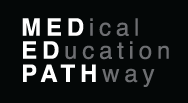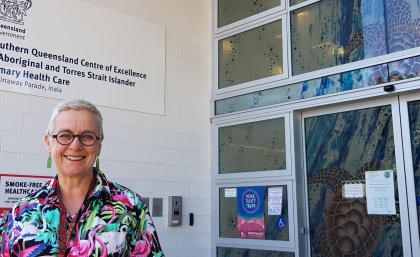It takes a village to raise a child and an entire community to support pregnant women to grow healthy babies, says one University of Queensland researcher.
Associate Professor Deborah Askew’s newly awarded Churchill Fellowship will allow her to learn from urban First Nations communities in Canada and Alaska about how they have successfully reduced rates of fetal alcohol spectrum disorder (FASD).
Dr Askew said FASD prevention strategies needed culturally appropriate and community-focused solutions.
“It is easy to blame the victim in all spheres of life,” she said.
“With FASD, it’s too easy to say that it is the woman’s fault and she shouldn’t be drinking alcohol.
“That’s part of the issue, but in reality, all of society is responsible for raising healthy children.”
Dr Askew said the Fellowship would allow her to bring back to Australia knowledge of successful programs that are working in Canadian and Alaskan First Nations urban communities, rather than having to start a new program from the ground up.
“A lot more work could be done in Australia,” she said. “FASD is not specific to Aboriginal and Torres Strait Islander people, but the hurt and trauma associated with the ongoing negative impact of colonisation, discrimination and racism means that some people use alcohol to dull the pain.
“And where there is a lot of alcohol, FASD will be there too.
“Some amazing community-led programs have been established in Western Australia’s Kimberley region, but there are few programs in urban areas that have been published so that others can learn from them.”
 Dr Askew said Canada had recognised the link between the Indian Residential School system, intergenerational trauma and the array of social ills plaguing the First Nations today, including fetal alcohol spectrum disorder.
Dr Askew said Canada had recognised the link between the Indian Residential School system, intergenerational trauma and the array of social ills plaguing the First Nations today, including fetal alcohol spectrum disorder.
“This echoes Australian policies that similarly took Aboriginal and Torres Strait Islander children away from their parents – the Stolen Generations. .
“For some, there is an overuse of alcohol to dull the pain of grief, hurt and trauma that has been passed down through generations, in addition to everyday lived experiences of socio-political discrimination and disadvantage.
“Now there is a government policy in Canada, in addition to the strategies employed by individual communities to promote substance-free pregnancy.
“We hope to learn from urban First Nations communities’ FASD prevention programs and bring these approaches back home to trial in urban Aboriginal and Torres Strait Islander communities.”
Dr Askew will travel to North America in April to meet with First Nations community-controlled organisations.
She is a Conjoint Associate Professor in General Practice Research, the Strategic Lead of Research at the Southern Queensland Centre of Excellence in Aboriginal and Torres Strait Islander Primary Health Care (Inala Indigenous Health Service) and Affiliate Associate Professor at UQ’s Poche Centre for Indigenous Health.
The Winston Church Memorial Trust allows Australian researchers to travel overseas and undertake research not available in Australia. Fellows are selected largely on the benefits they can bring the Australian community.
Media: Associate Professor Deborah Askew, [email protected]; Faculty of Medicine Communications, [email protected], +61 7 3365 5118, +61 436 368 746
Full Article: https://www.uq.edu.au/news/article/2019/10/researcher-study-canada’s‑success-preventing-fetal-alcohol-spectrum-disorder

